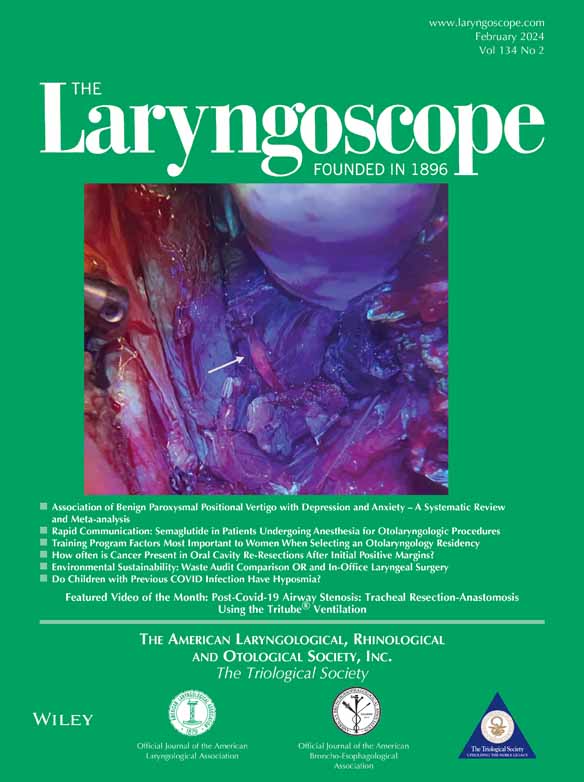Long-Term Perceived Benefit of Pediatric Cochlear Implant Users with Unilateral Hearing Loss
Triological Society 2023 Combined Sections Meeting, Coronado, California, USA, January 26–28, 2023.
Kevin D. Brown is on the surgical advisory board for MED-EL Corporation and Advanced Bionics, and a Consultant for Cochlear Corporation. Margaret T. Dillon is supported by research grants from MED-EL and the NIH. Lisa R. Park is supported by a research grant from MED-EL.
The Childhood Unilateral Hearing Loss (CUHL) Clinical Trial was supported by a research grant by MED-EL Corporation. All other authors have no disclosures to report.
The authors have no conflicts of interest to disclose.
Abstract
Objective
To assess the perceived benefit of cochlear implant (CI) use for children with unilateral hearing loss (UHL) and evaluate whether perceived abilities are associated with performance on measures of speech recognition and spatial hearing.
Method
Nineteen children with moderate-to-profound UHL underwent cochlear implantation. The Speech Spatial and Qualities of Hearing Questionnaire modified for children (SSQ-C) were completed by parental proxy pre-operatively and at 3, 6, 9, 12, 18, and 24 months post-activation. Linear mixed models evaluated perceived benefits over the study period. Pearson correlations assessed the association between subjective report and performance on measures of word recognition with the CI alone and spatial hearing (speech recognition in spatially-separated noise and sound source localization) in the combined condition (CI plus contralateral ear).
Results
For the SSQ-C, parents reported significant improvements with CI use as compared to pre-operative perceptions (p < 0.001); improved perceptions were either maintained or continued to improve over the 2-year post-activation period. Perceived benefit did not significantly correlate with word recognition with the CI alone or spatial hearing outcomes in the combined condition.
Conclusion
Families of children with UHL observed benefits of CI use early after cochlear implantation that was maintained with long-term device use. Responses to subjective measures may broaden our understanding of the experiences of pediatric CI users with UHL in addition to outcomes on typical measures of CI performance.
Level of Evidence
3 Laryngoscope, 134:919–925, 2024




